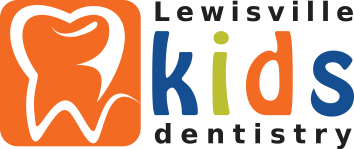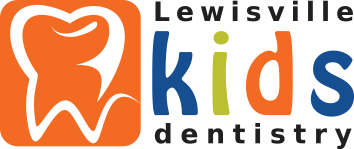Post-Op Care
Lewisville, TX PEDIATRIC DENTIST

CARE OF THE MOUTH AFTER LOCAL ANESTHETIC
- If the procedure was in the lower jaw, then the tongue, teeth, lip and surrounding tissue will be numb or asleep.
- If the procedure was in the upper jaw, then the teeth, lip and surrounding tissue will be numb or asleep.
- Often, children do not understand the effects of local anesthesia, and may chew, scratch, suck, or play with the numb area. These actions can cause minor irritations, or they can be severe enough to cause swelling and abrasions to the tissue.
- Monitor your child closely for 2 hours following the appointment. Try to keep your child on a liquid or soft diet until the anesthetic has worn off.
Please do not hesitate to call our Lewisville dentist office if you have any questions.
CARING FOR YOUR MOUTH AFTER TRAUMA
- Keep the traumatized area as clean as possible. A soft wash cloth often works well to aid the healing process.
- Watch for darkening of traumatized teeth as this could be an indication of a dying nerve (pulp).
- If swelling lasts longer than 48 hours, our office needs to see the patient as soon as possible. Ice should be administered during the first 24 hours to keep the swelling to a minimum.
- Watch for infection (gum boils) in the area of trauma. If an infection is observed, call the office so the patient can be seen as soon as possible.
- Maintain a soft diet for two to three days, or until the patient feels comfortable eating normally again.
- Avoid foods that are extremely hot or cold.
- If an antibiotic or pain medicine is prescribed, be sure to follow the prescription as directed.
Please do not hesitate to call our Lewisville office if you have any questions.
CARING FOR YOUR MOUTH AFTER EXTRACTIONS
- Do not scratch, chew, suck, or rub your lips, tongue, or cheek while they feel numb or asleep. Your child should be watched closely so they do not injure the affected area before the anesthesia wears off.
- Do not rinse your mouth for several hours.
- Do not spit excessively.
- Do not drink a carbonated beverage for the remainder of the day.
- Do not drink through a straw.
- Keep your fingers and tongue away from the extraction area.
Bleeding – Some bleeding is to be expected. If unusual or sustained bleeding occurs, place cotton gauze firmly over the extraction area and bite down or hold in place for fifteen minutes. This can also be accomplished with a tea bag. Repeat if necessary.
- Maintain a soft diet for a day or two, or until the child feels comfortable eating normally again.
- Avoid strenuous exercise or physical activity for several hours after the extraction.
Pain – For discomfort use Children’s Tylenol, Advil, or Motrin as directed for the age of the child. If a medicine was prescribed, then follow the directions on the bottle.
Please do not hesitate to contact our Lewisville dentist office if you have any questions.
CARING FOR SEALANTS
Sealants keep out plaque and food and decrease the risk of decay by forming a thin covering over the pits and fissures in your teeth. Since, the covering is only over the biting surface of the tooth, areas on the side and between teeth cannot be coated with the sealant. Good oral hygiene and nutrition are still very important in preventing decay next to these sealants or in areas unable to be covered.
To avoid fracturing the sealant, your child should refrain from eating ice or hard candy. Regular dental appointments are recommended in order for your dentist to ensure the sealants remain in place.
The American Dental Association recognizes that sealants play an important role in the prevention of tooth decay. When properly applied and maintained, they can successfully protect the chewing surfaces of your child’s teeth. A total cavity prevention program includes regular visits to the dentist, the use of fluoride, daily brushing and flossing, and limiting the intake of sugar-rich foods. If these measures are followed, and sealants are used on the child’s teeth, the risk of decay can be reduced or may even be eliminated!
ORAL DISCOMFORT AFTER A CLEANING
A thorough cleaning almost always produces some bleeding and swelling, and may cause some tenderness or discomfort. Tender and inflamed gums from insufficient oral hygiene are to blame, not a rough cleaning.
We recommend the doing following for 2-3 days after your cleaning:
- A warm salt water rinse 2-3 times per day. To make a saltwater rinse, use 1 teaspoon of salt in 1 cup of warm water.
- For discomfort use Children’s Tylenol, Advil or Motrin as directed.
Please do not hesitate to call our Lewisville dentist office if the discomfort persists for more than 7 days, or if you have any questions.

